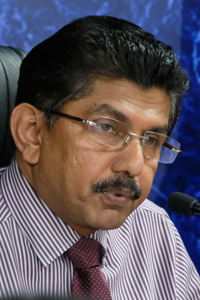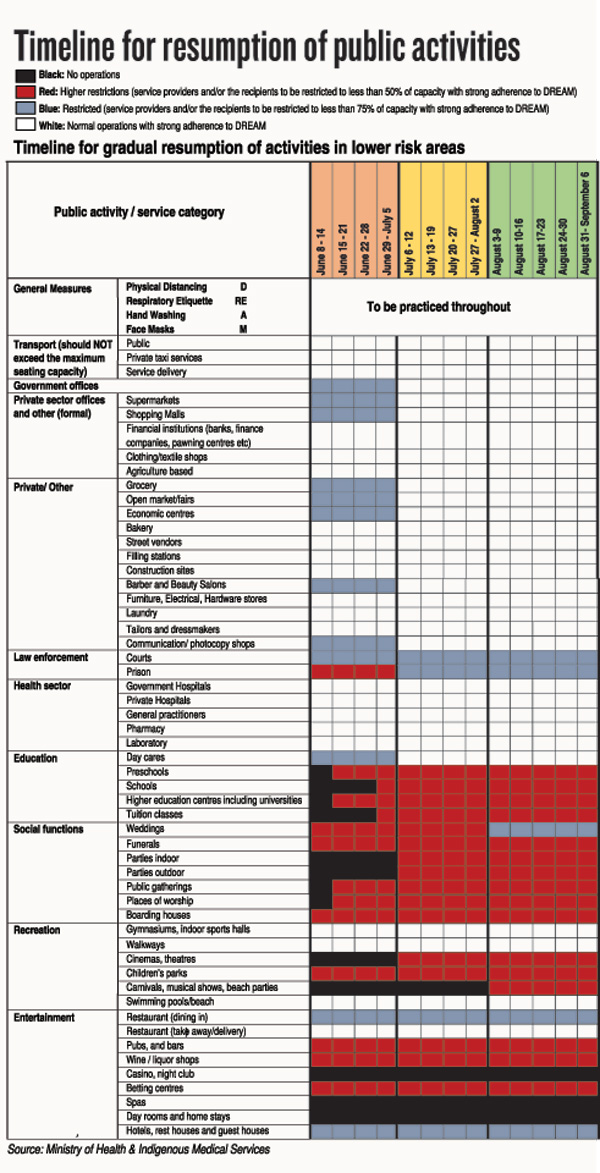News
Plugging leaks of COVID-19 the need when SL opens entry points, says Health DG
A vital need when opening the entry-points into Sri Lanka is to ensure that any leaks of COVID-19 will be effectively plugged, a high-level health official said this week.

Dr. Anil Jasinghe
“The navy personnel cluster has been brought under control, it is the returnee cluster which is still ongoing. As such, when we open the entry-points including the Bandaranaike International Airport (BIA), Katunayake, the need of the hour will be to stop a leak of COVID-19 into the community,” reiterated the Director-General of Health Services, Dr. Anil Jasinghe.
Sri Lanka has constructed its behaviour to meet the COVID-19 crisis and this has become our shield. It is important to wield this shield ever so closely in view of countries such as Germany, South Korea and Australia experiencing a second wave, he said.
Dr. Jasinghe told the Sunday Times: “We are expecting to open up Sri Lanka with strict protocols in place. The country was able to prevent community transmission through quarantining which is the ‘best remedy’ with no leaks. Whoever, including tourists, comes through after the airport is opened would have to undergo a mandatory RT-PCR test at the airport.”
Tourists have to come in groups of eight or more and not as single backpackers or smaller groups. They have to book their hotels and their tours in advance before they arrive in the country. They have to stay a minimum of 6-7 days and would be tested again between the 5th and 7th days, to make sure that they don’t have the virus. A minimum stay is being stipulated as otherwise they can come in for a very short stay and virus eka halala yanna puluwan (can leave the virus behind). Couples and families can come together even if not part of an eight-member group but with a clear itinerary.
“Ona ona than walata yanna be,” said the DG, explaining that the itinerary of the tourists has to be given in advance so that their movements can be tracked and they can be given a ‘safety corridor’ even if the virus enters the country. Contact-tracing will also be easier this way. “Tourists need to be provided a seamless service, this is the business model we should follow so that we can even attract health tourism as a safe destination.”
Dr. Jasinghe said that “we would also monitor the world situation with regard to COVID-19”.
An app is being developed for tourists, it is learnt.
Referring to the opening of schools next week (Grades 5, 11 & 13), the DG said that he met school van drivers this week to discuss preventive measures against COVID-19.
These vans should bring children from only a maximum of three schools and not a mix from a large number, he said, adding that the ministry is not recommending face-masks for very small children in the classroom as they need interaction but only when they are coming to school or going home from school.
Grades 10 & 12 are due to open on July 20; Grades 3, 4, 6, 7, 8 & 9 on July 27; and Grades 1 & 2 and preschools on August 10.
Daycare centres will be allowed to function fully with precautionary measures from tomorrow as parents have to return to work, while tuition classes opened up this week with strict instructions to prevent a rush, through staggered times, when the students are entering or exiting the hall.
Meanwhile, preventive measures are being implemented at the BIA, assured Airport & Aviation Services Ltd., Vice Chairman R. Sooriyarachchi.
Detailing these measures, he said that automated wash basins and hand-sanitizers have been installed in the arrival and departure outer halls, while the temperature of passengers and visitors is being checked at the main checkpoint of the Air Force and the entrance to the departure and arrival terminals. The luggage and trolleys are disinfected. Thermal scanners have been installed in the arrival and departure terminals and the passenger boarding bridge.
Passengers or visitors without masks are not allowed in and social distancing ensured when allocating seats and in queues, while all the counters with direct contact with passengers will be demarcated by a glass barrier. The immigration counters will be given microphones to communicate with passengers, while the staff who are in direct contact with passengers will be in protective gear.
| India to begin COVAXIN human trials | |
| Human clinical trials are scheduled to start across India this month on the potential vaccine ‘COVAXIN’ against COVID-19.COVAXIN, developed by the Hyderabadi-based Bharat Biotech in collaboration with the Indian Council of Medical Research and the National Institute of Virology, Pune, has been approved for human trials by the Drug Controller General of India. Hydroxychloroquine The United Kingdom (UK) is to resume clinical trials which use the anti-malarial drugs hydroxychloroquine and chloroquine to determine their suitability in treating COVID-19. The UK’s Medicines and Healthcare Products Regulatory Agency (MHRA) paused the COPCOV study – which had got underway in Thailand and the UK – pending review of earlier trial results, has now given the green light to proceed. The study was halted because it was found that this medication was not effective in the treatment of patients. However, now it is being tested to see whether it would prevent people getting infected with COVID-19. Healthcare workers and others at risk in the UK are being recruited for the study being led by the Oxford University’s Mahidol Oxford Tropical Medicine Research Unit. Although, the Thai capital, Bangkok, is the main study site, no recruitment is being done there, as only a few cases of COVID-19 are being reported there.
|








